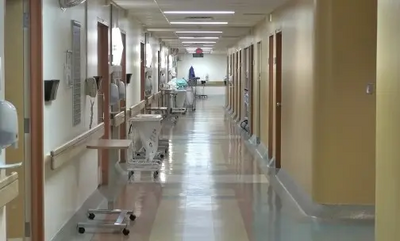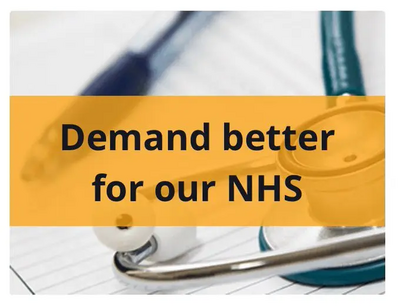Lib Dems will invest £35 billion and stop Brexit to protect NHS
LIB DEMS BRIGHTER FUTURE CAMPAIGN - 22 DAYS TO POLLING DAY
The Liberal Democrats have set out their plans to protect the NHS, by stopping Brexit and investing an extra £35 billion in the health service and social care over the next five years.
The Liberal Democrats would raise £7 billion a year in additional revenue, ring-fenced for the NHS and social care services, by adding a penny on income tax. On top of this, the party has announced a £10 billion capital fund to upgrade equipment, ambulances, hospitals and other NHS buildings to bring them into the 21st Century.
The Liberal Democrats have also set out plans to tackle the severe staffing shortages across the NHS and end the current shortfall of GPs within five years (by 2024/25). This would be done by retaining free movement including for the 65,000 EU citizens working in the NHS, reinstating nursing bursaries and establishing a national workforce strategy to match training places to future needs.

Announcing the policy, Liberal Democrat Shadow Secretary for Health, Wellbeing and Social Care Luciana Berger said:
"The NHS is struggling to cope with severe staff shortages, chronic underfunding and crumbling hospital buildings. All of these problems would be made much worse by a Tory or Labour Brexit that would end free movement and make it harder to attract nurses and doctors from the EU. We will build a brighter future by stopping Brexit, and we will put a penny on income tax to raise an extra £35 billion for the NHS and social care.We are the only party with a credible plan to protect the NHS, by tackling the staffing crisis, investing in mental health services, social care, public health and and making our NHS buildings fit for the 21st century."
The Liberal Democrats comprehensive plan to protect NHS:
Raising £7 billion a year in additional revenue
- A 1p rise on the basic, higher and additional rates of Income Tax would be ring-fenced to be spent only on NHS and social care services. This would amount to £35 billion in real terms over the next five years. Of the £35 billion, £32.2 billion would be spent in England, £1.8 billion in Wales and £1 billion in Northern Ireland (please note this revenue will be neither levied nor spent in Scotland because income tax policy is devolved).
-
This funding would be focused on relieving the crisis in social care, tackling urgent workforce shortages, and investing in mental health and prevention services. This represents the most efficient and effective way of spending these extra resources - ensuring they will have the greatest impact on the quality of care patients receive.

£10 billion of capital funding
- Investments in equipment, hospitals, community, ambulance and mental health services buildings, to bring them into the 21st Century. This would be paid for through government borrowing and would be on top of the £35 billion raised through the penny on income tax. NHS leaders recently warned that the Conservative government's lack of investment in capital funding for the NHS is putting patient safety at risk (NHS Providers, August 2019).
Address the chronic staffing shortages facing the NHS

-
Stopping Brexit to ensure we retain freedom of movement and continued mutual recognition of qualifications.
-
65,000 EU citizens work in the NHS, including 20,000 nurses & 10,000 doctors (House of Commons Library, NHS staff from overseas: statistics).
-
We've already lost more than 5,000 EU nurses (net) in the last 2 years - exacerbating the nursing shortage that already sees 40,000 posts unfilled (Nursing & Midwifery Council, Register data tables, 31 March 2019).
Reinstating support for nursing students
- with bursaries for specialties, where shortages are most acute such as mental health and learning disability nursing.
- In 2018, two years on from the removal of the NHS student bursary, applications to nursing degree courses had fallen by a third in England. Numbers applying to begin training in September 2018 dropped 12% compared to the same time the previous year.
Ending the GP shortfall within five years (2024-25)

-
Training more GPs and also making better use of nurses, physiotherapists and pharmacists, and other health professionals, and also phone or video appointments, where clinically suitable.
-
The Conservative Government set an ambition in 2016 to increase GP numbers by 5,000 by 2020, but instead the numbers have fallen by 290 (full-time equivalent) - a decline of 1%.
A national workforce strategy
-
to review the NHS's future needs for all staff ensure training places are matched to future needs.
-
Between July and September 2018, there were 94,000 full-time equivalent advertised vacancies in hospital and community services alone. This equates to an estimated shortfall of 8% (around 1 in 12 posts).
-
The consequences of vacancies means increased costs for NHS trusts and worse patient care. At the end of 2018, NHS trusts were forecasting spending some £5.6 billion on temporary staff in 2018/19.
Source: Article reproduced form Lib Dem Voice
The Voice |19th November 2019
END

